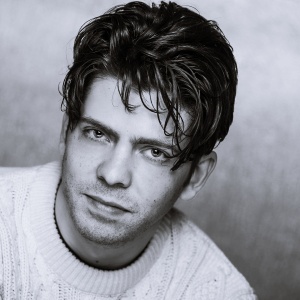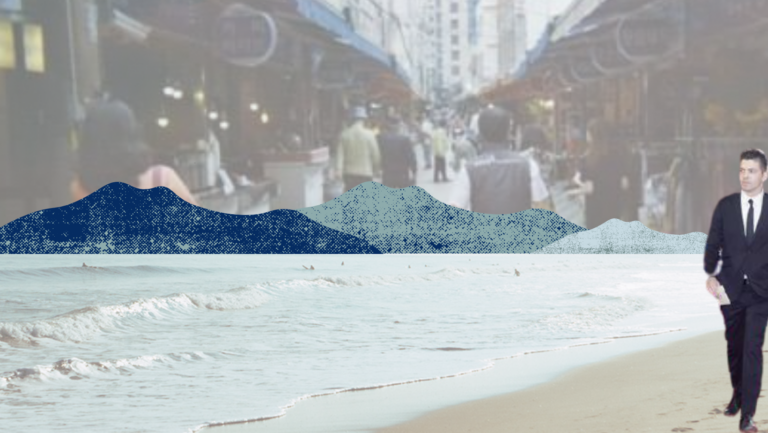Meisner in the Time of Corona
We gathered on the evening of Sunday March 15th, us three, under the arches of St. Georges Hall, keeping our distance from each other. I took out a cigarette and so did Craig. JT waited with us.
Confounded by what was happening, we exchanged the casual, shaky small-talk of the situation.
“How are you feeling?”… “Totally crazy huh?”… “Any symptoms?”
Still we gathered, convinced that such a modest group would be of no consequence. The risks were low, and we would handle ourselves with care.
As we walked to the elevator, JT offered a prediction of the coming weeks.
“It’s going to get a lot worse before it gets any better… this might be the last time we can meet for a while.”
I had hoped he was wrong. I couldn’t fathom the idea of such a quick escalation. Neither could Craig. There was the lingering hope that, as long as we took the right precautions, we would be able to continue practicing our craft unhindered. These intimate sessions, filled with exercises that stretched and toned the muscles of our passion, were a gift—if not a luxury.
The elevator opened and we entered the rehearsal room, which Craig had secured for our group at no cost from the Arts and Letters Club of Toronto. We paced around. Stretched. Took deep breaths. We eventually sat down and the conversation began.
We spoke about auditioning; how we approach them, the preparation involved, and how it links us to the work. JT explained how he views himself as a doctor or surgeon, and that the “patient” was the film company requiring the role he was auditioning for. He enters with a professional zeal, keen on “curing” the “patient” of their “ailment” (the lack of a person to play the part). He provides his “solution” or “cure”, which is his performance in the room, prepared beforehand using all his expertise, and when the audition is over, he goes about his day, just as a doctor would after meeting with a patient and providing a diagnosis.
Craig spoke about “the three circles” defined by Patsy Rodenberg in her book The Second Circle, which Craig then removed from his bag and gave to JT as a gift. According to Rodenberg, we are all in these circles at different times. The first circle defines someone as being withdrawn and introverted. The third circle is the opposite: much too extroverted or aggressive. The goal is to be in the second circle, connected to your surroundings and yourself. Totally present. Not too much, not too little.
Since we had executed the basic exercises with considerable progress over the past few weeks, Craig guided us into a more advanced exercise involving “activities.” JT went first, sitting on the floor trying to construct a house out of coins by standing them on their edges. As per the exercise, I waited outside for a minute and then knocked on the door. When he answered, we entered into repetition.
“You were quick,” I said.
“I was quick,” he repeated as he immediately ran back to the coins, leaving me hanging in the doorway.
The goal of Meisner-work is to be totally present and responsive. To listen. You receive something from your partner and react to it by repeating it, but you can express any opinion in the repetition. If JT says “Your shoes are black,” my immediate, internal reaction may be “Why the heck are you talking about my shoes? Shouldn’t we be talking about something more important?” This can be expressed in spirit while still saying “My shoes are black.” Eventually both participants enter into a flow of truly mutual responsiveness, truly seeing each other and acting naturally.
Later in the evening, when it was my turn at an activity, I attempted to draw a tiger, which ended up looking more like a demon. JT was my scene partner.
“You’ve never seen a tiger before,” he joked.
I stood up, insulted. “I’ve never seen a tiger before?” I exclaimed incredulously. Of course I’d seen a freaking tiger before.
He repeated, “You’ve never seen a tiger before.”
I corrected, “I’ve never seen a tiger UP CLOSE before.”
The exercises continued until 8pm, at which point we gathered our belongings, stacked the chairs, and locked up. We hung around outside for a moment as Craig and I had another cigarette, and though we had been there before, just hours ago, the air of anxiety had cleared for a while. We chatted easily, still warm from the Meisner-work, still living in that dream, if even for a few moments more. We lingered in it, and I remember truly seeing these people. The lines on their skin. The flashes of sincerity in our eyes. The camaraderie between us, both spoken and silent. If there’s one thing I can take away from Meisner, it’s the way it strips you down, leaving you naked with no other option than to accept who or what is in front of you. It takes trust, both in yourself and in the other person. We said our goodbyes and thanked each other for the work we had done, and given. I walked home alone, down Yonge and onto Shutter street, and though I felt the shell of the evening’s dream dissolve into the night, I smiled, knowing that my partners remained in my heart.
I had no idea of the changes that were about to occur within our world. Our country. This city. JT hit it on the nose. It would get a lot worse before it got any better.
A couple Sundays have passed now, and of course, we have not met. As if watching a train leave, I feel like we will wait at the station a while for the next one, where we will sit together again and discuss the work. Where we will pat each other on the back for taking risks. Where we will give books as gifts again.
As I write this, I must simply, wholeheartedly say that I miss them. I miss the room. I miss sharing my passion with you, those who would practice with me. I look back on that last Sunday, which was not far away but seems so distant, with the dull, melancholic ache of a summer afternoon ending.
Sitting here at the kitchen table, I listen. There is a sound out there, somewhere. A growling, low, thunderous groan, filled with foam and spit, and I can’t help but feel my nerves flutter as I imagine the tiger waiting under the window, biding its time.
All that I can do is listen.










Comments